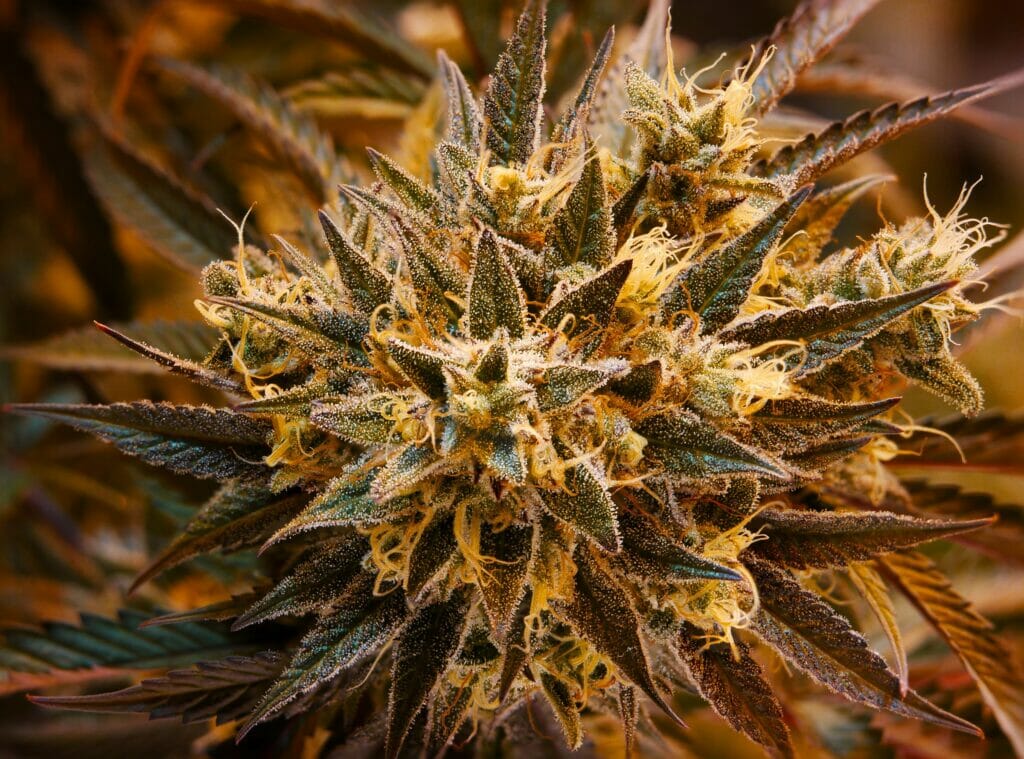Pros and Cons of Delta-8

Delta-8 is rapidly growing into the next “holy grail” of cannabis, and we’re just now witnessing the debut of this fascinating compound.
Think of delta-8 as the best of both worlds: like delta-9 THC, it provides a euphoric high, albeit a milder version. And like CBD, delta-8 is a product of industrial hemp, making it federally legal.
However, like all things, delta-8 THC is not for everyone. But we’re hoping with these pros and cons, you can make a more informed decision for yourself as a consumer
Pro: It’s More Legally Accessible Than Delta-9
There are countless Americans who’ve found both recreational and therapeutic success with cannabis products containing THC. However, marijuana is still illegal in most parts of the country.
Luckily, delta-8 offers some major legal leeway: despite being a form of THC, delta-8 can be created from CBD, which is found in hemp.
And unlike marijuana, industrial hemp and its derivatives are federally legal in the United States, so long as they contain less than 0.3% delta-9 THC.
Consequently, delta-8 is given a legal loophole, which makes it more accessible to the public.
Con: It’s Not Legal Everywhere
Although delta-8 THC is, by default, federally legal, keep in mind that this doesn’t make it legal everywhere.
Currently, delta-8 THC is illegal in the following states:
-Alaska
-Arkansas
-Arizona
-Delaware
-Idaho
-Iowa
-Mississippi
-Montana
-Nebraska
It’s also important to understand that delta-8 is legal because of a loophole, making it a gray area in federal regulation. This means that there is no guarantee that it will stay this way in every state. On top of that, it’s possible that if one were to take a drug test while taking delta-8, it would show up the same as delta-9 THC.
Pro: It Gives a Milder High
Similar to delta-9, delta-8 THC possesses psychoactive effects, meaning that it creates a “high,” or intoxicating effect.
However, this effect is far less potent than delta-9 THC, giving it an appeal to those who have a sensitivity to delta-9, or even for cannabis lovers looking for a mild break.
Con: Some Side Effects May Occur
While delta-8 is less potent than delta-9 THC, that doesn’t mean it’s without its side effects.
The psychoactive effect associated with delta-8 may cause feelings of happiness, euphoria, and a slight surge in energy. But it may also include side effects like increased appetite, discomfort and restlessness in some cases, body tiredness and valve movement.
That being said, these side effects don’t occur in every individual, and no two users will have the same reaction to delta-8. That’s why if you’re new to delta-8, it’s always key to start out with a very small dose and observe the way it makes you feel.
Pro: Possible Benefits
Similar to CBD and delta-9 THC, delta-8 THC may possess numerous benefits to one’s wellbeing.
This is largely attributed to its anti-discomfort response, which occurs when delta-8 is absorbed by the CB2 receptors in the endocannabinoid system. As a result, delta-8 has the potential to relieve pain, among other benefits.
Delta-8 also interacts with CB1 receptors in the brain, indicating that it can help manage relieve body ache and discomfort which can then improve related concerns like sleep and focus.
Con: Limited Research
The potential benefits of delta-8 are enormous, but customers must understand that these benefits have not yet been proven.
Whether it’s CBD or THC, a compound’s benefits and safety is only confirmed through extensive studies and clinical trials.
Currently, the majority of studies only cover the tolerance of delta-8’s side effects, which, while promising, are nonetheless still limited, while peer-reviewed articles have been published since the 1970s exploring the possible uses of delta-8.
At this time, the benefits of delta-8 are largely backed by anecdotal evidence, so it’s important to use your own judgment if you’re seeking delta-8 for its possible health-promoting properties.



